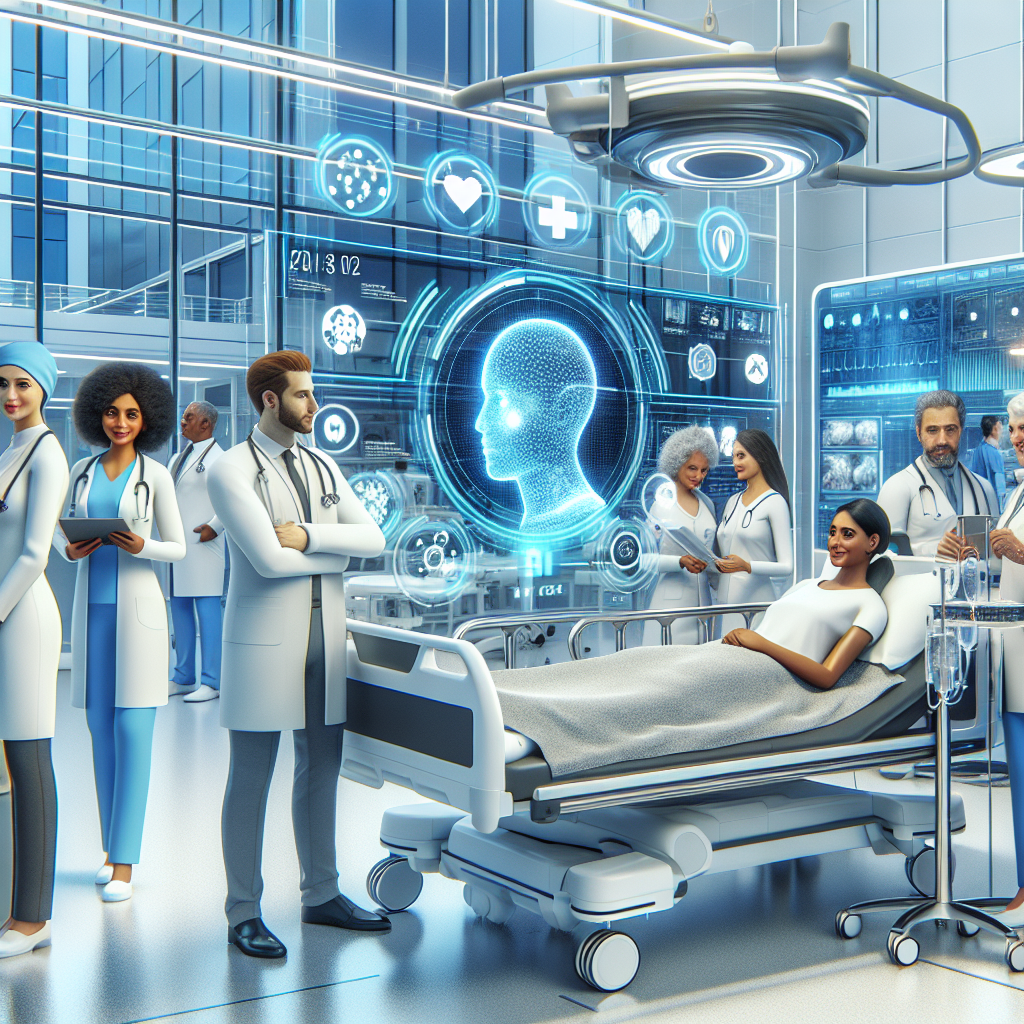Improving Patient Care with AI Solutions
In recent years, artificial intelligence (AI) has been revolutionizing the healthcare industry, offering new ways to enhance patient care and outcomes. From predictive analytics to robotic surgeries, AI solutions are transforming the way healthcare providers diagnose, treat, and manage patient conditions. In this article, we will explore the various ways in which AI is being used to improve patient care, as well as some common questions and concerns surrounding the use of AI in healthcare.
AI in Diagnostics
One of the most significant applications of AI in healthcare is in diagnostics. AI-powered algorithms can analyze large amounts of patient data, such as medical records, lab results, and imaging scans, to help healthcare providers make more accurate and timely diagnoses. For example, AI can help radiologists detect early signs of cancer in mammograms or identify abnormalities in X-rays. This can lead to faster diagnosis and treatment, ultimately improving patient outcomes.
AI in Treatment Planning
AI can also be used to develop personalized treatment plans for patients based on their individual characteristics and medical history. By analyzing large datasets of patient outcomes and treatment responses, AI algorithms can help healthcare providers determine the most effective treatment options for each patient. This can lead to better outcomes, reduced side effects, and improved quality of life for patients.
AI in Remote Monitoring
Another way in which AI is improving patient care is through remote monitoring. AI-powered devices can track patients’ vital signs, activity levels, and medication adherence in real-time, allowing healthcare providers to remotely monitor their patients and intervene when necessary. This can help prevent complications, reduce hospital readmissions, and improve overall patient care.
AI in Surgical Robotics
AI is also being used in surgical robotics to assist surgeons during complex procedures. Robotic systems equipped with AI algorithms can help surgeons perform more precise and minimally invasive surgeries, leading to faster recovery times and better outcomes for patients. AI can also analyze surgical data in real-time to provide feedback to surgeons and help optimize surgical techniques.
AI in Predictive Analytics
Predictive analytics is another powerful application of AI in healthcare. By analyzing patient data and historical trends, AI algorithms can predict which patients are at risk of developing certain conditions or complications. This can help healthcare providers intervene early and provide preventive care to high-risk patients, ultimately reducing healthcare costs and improving patient outcomes.
FAQs:
Q: Is AI replacing human healthcare providers?
A: AI is not replacing human healthcare providers but rather complementing their skills and expertise. AI can help healthcare providers make more informed decisions, improve diagnostic accuracy, and optimize treatment plans. Ultimately, AI is enhancing the quality of patient care by providing healthcare providers with valuable tools and insights to improve outcomes.
Q: Is AI secure and private in healthcare?
A: Security and privacy are critical considerations when using AI in healthcare. Healthcare providers must ensure that patient data is protected and compliant with privacy regulations, such as HIPAA. AI algorithms must be designed and implemented with robust security measures to prevent data breaches and unauthorized access. It is essential to work with reputable AI vendors who prioritize security and privacy in their solutions.
Q: How can patients benefit from AI in healthcare?
A: Patients can benefit from AI in healthcare in several ways. AI can help improve diagnostic accuracy, personalize treatment plans, and provide remote monitoring and support. Patients may experience faster diagnosis, more effective treatments, and better outcomes with the help of AI-powered solutions. Additionally, AI can help reduce healthcare costs and improve access to care for patients.
Q: What are the limitations of AI in healthcare?
A: While AI offers significant benefits in healthcare, there are some limitations to consider. AI algorithms are only as good as the data they are trained on, so biases in the data can lead to biased or inaccurate results. Additionally, AI may lack the human touch and empathy that healthcare providers offer, which is essential for patient care. It is important to use AI as a tool to augment, rather than replace, human healthcare providers.
In conclusion, AI solutions are transforming patient care by enhancing diagnostics, treatment planning, remote monitoring, surgical robotics, and predictive analytics. While there are some common questions and concerns surrounding the use of AI in healthcare, it is clear that AI has the potential to revolutionize the way healthcare is delivered and improve patient outcomes. By leveraging the power of AI, healthcare providers can provide more personalized, efficient, and effective care to their patients.

